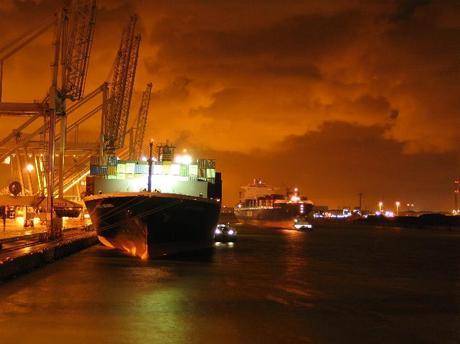
Cargo ships in Rotterdam Harbor. In 2013, trade between the U.S. and EU totaled more than $650 billion. (Photo: Wikimedia Commons)
This post was published in Corporate Compliance Trends, CIPE’s new blog focused on anti-corruption compliance issues in emerging and frontier markets.
The next year is shaping up to be a big one for multilateral free trade agreements and, by extension, efforts to fight corruption in international commerce.
First, there is the historic Trade Facilitation Agreement (TFA) that grew out of the World Trade Organization (WTO) accord reached in December 2013 in Bali. Under the TFA, all the WTO’s 160 members agreed to work toward reducing the red tape and corruption at ports of entry, so that goods can move more quickly and economically from country to country. Second, there is the Transatlantic Trade and Investment Partnership (TTIP), between the United States and the 28 nations of the European Union. Together, the U.S. and EU account for 60 percent of the world’s GDP.
What do trade agreements have to do with reducing corruption? Historically, not much. But these two agreements break new ground both in their scope and their potential for attacking corruption as a barrier to trade. This fact is often lost in media coverage that focuses on winners and losers within specific countries and economic sectors. Adding to the lack of attention paid to corruption issues is the fact that negotiations are complex, not always transparent and can take years to conclude.
To zero in on the role of corruption in disrupting free trade, American University’s Washington College of Law recently put together a panel of experts and advocates, headlined by former World Trade Organization Director General Pascal Lamy. The moderator of the “Addressing Corruption in Global Trade” session, Nancy Boswell, framed the issue concisely.
Read More…

